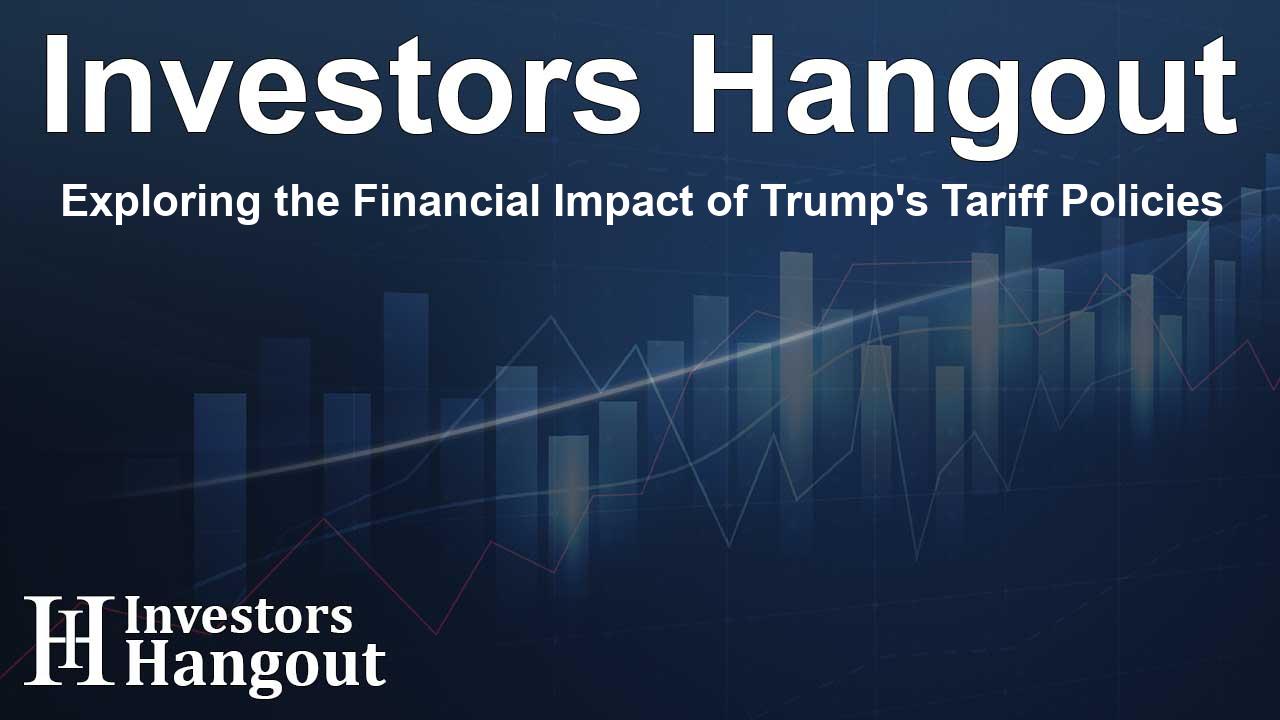Exploring the Financial Impact of Trump's Tariff Policies

Tariffs Transforming U.S. Revenue Generation
The tariffs imposed during President Donald Trump's administration have become a notable source of income for the U.S. government, generating a staggering $350 billion annually.
Economists Assess the Revenue Impact
This revenue, portrayed as a "significant" addition to federal income, is underscored by economist Torsten Slok from Apollo Global Management. These tariffs, functioning as taxes on imported goods, comprise roughly 18% of annual household income tax contributions. This showcases the profound influence tariffs wield over the American economy.
Understanding the Role of Tariffs
Economist Slok suggests that despite their contentious nature, tariffs have resurfaced as a pivotal component of U.S. trade policy. With the annual revenue now projected at $350 billion, these tariffs are among the highest in recent history, prompting discussions about their long-term viability and impact.
Significance in Fiscal Policy
Slok emphasizes, "The bottom line is that the amount of money collected in tariff revenue is very significant." With Trump's hesitation to elevate taxes in other areas, these tariffs gain even more importance in addressing federal financial needs. Recognizing their impact, the Committee for a Responsible Federal Budget has highlighted these tariffs as a means to alleviate the nation’s noted $37 trillion debt.
Forecasts on Economic Benefits
The Congressional Budget Office (CBO) speculates that the influx from tariffs could contribute to a reduction in the federal deficit by as much as $4 trillion over the next decade. Nevertheless, many economists caution that while this tariff revenue may help manage debt, it is unlikely to eradicate it altogether.
Tariffs and Financial Market Stability
Initially viewed as destabilizing, tariffs have shifted perspectives, becoming a cornerstone for financial stability that shields the U.S. from global market fluctuations. As highlighted in recent reports, this measure has enabled the country to navigate potential crises within the bond market, averting the worst impacts of recent sell-offs.
Long-term Implications for Trade Policy
Prominent economist Joao Gomes from Wharton notes the possible permanence of these tariffs. Given the potential support for tariffs from both political parties, he states their influence is likely to endure, despite uncertainties around their future scope and direct effects on the economy.
Market Reactions and Economic Slowdowns
However, the introduction of tariffs has led to a complex situation for Federal Reserve Chair Jerome Powell. Economist Justin Wolfers points out that these tariffs have contributed to an economic slowdown and rising unemployment, presenting a challenging scenario for monetary policy.
Global Perspectives on U.S. Tariff Policies
Not every nation stands to gain from these tariffs. For instance, data indicates that China is increasingly stepping back from the U.S. market, with foreign investments demonstrating a net inflow of only $2 billion in U.S. securities over a recent three-month span.
Concerns from Business Leaders
At a private meeting of over 100 influential business executives, including leaders from Fortune 500 companies, significant reservations were voiced regarding the long-term consequences of Trump's economic policies, illustrating the mixed reactions these tariff systems provoke within the business community.
Stock Market Trends Amid Tariff Changes
Throughout the ongoing tariff discussions, investment options like the SPDR S&P 500 ETF Trust (SPY) and Invesco QQQ Trust, Series 1 (QQQ) have seen notable growth, with respective increases of 14.06% and 18.03% year-to-date. This trend indicates investor confidence in certain sectors as they adjust to the new economic landscape influenced by tariffs.
Frequently Asked Questions
What are the main effects of Trump's tariffs on federal revenue?
Trump's tariffs have generated about $350 billion annually, significantly contributing to federal income and reducing the deficit.
How do tariffs influence U.S. economic policy?
Tariffs have become central to U.S. trade strategy, acting as a tool for revenue generation amidst federal budget constraints.
What predictions does the CBO have regarding tariff impacts?
The CBO estimates the tariffs could reduce the deficit by $4 trillion over the next decade, although total elimination of debt growth is deemed improbable.
How have these tariffs affected global market interactions?
Countries like China are retracting from U.S. markets, reflecting shifts in international investment and trade dynamics.
What sentiment exists among business leaders regarding tariffs?
Many CEOs express concerns over the long-term impacts of tariff policies on economic stability and growth.
About The Author
Contact Lucas Young privately here. Or send an email with ATTN: Lucas Young as the subject to contact@investorshangout.com.
About Investors Hangout
Investors Hangout is a leading online stock forum for financial discussion and learning, offering a wide range of free tools and resources. It draws in traders of all levels, who exchange market knowledge, investigate trading tactics, and keep an eye on industry developments in real time. Featuring financial articles, stock message boards, quotes, charts, company profiles, and live news updates. Through cooperative learning and a wealth of informational resources, it helps users from novices creating their first portfolios to experts honing their techniques. Join Investors Hangout today: https://investorshangout.com/
The content of this article is based on factual, publicly available information and does not represent legal, financial, or investment advice. Investors Hangout does not offer financial advice, and the author is not a licensed financial advisor. Consult a qualified advisor before making any financial or investment decisions based on this article. This article should not be considered advice to purchase, sell, or hold any securities or other investments. If any of the material provided here is inaccurate, please contact us for corrections.
